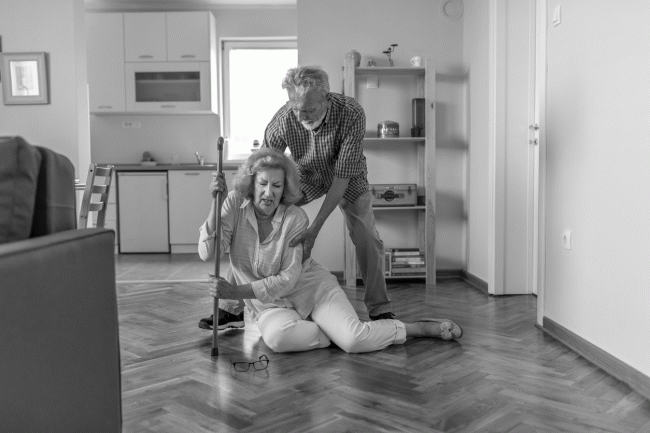Archives
Stay up-to-date and on top of your health with our e-Newsletter and receive updates on current treatments and vital health issues.
The Fallout of Falls

Falling over is more common than realised, and the impact of these falls is far more serious than expected. Falls place a heavy burden on the person, their family, the wider community and the health system at large. Over the last year, approximately 8% of women aged in their 40s, 14% in their 50s, 25% in their 60s and 40% in their 70s have experienced a fall. As we age, falls are not only more common, but the consequences more serious. However, if the slip and fall accident was caused by dangerous conditions on a property and you are facing long-term or lifelong effects, it is in your best interest to seek legal guidance from an accident attorney as soon as possible. In older adults, falls often result in moderate to severe injuries such as lacerations, fractures and head trauma, which can lead to further, and rarely, even fatal, complications. Those who sustained foot injuries after a slip and fall accident may see a podiatrist to receive the proper treatment. You may also benefit from a Cary massage therapy professional for your recovery. If the pain comes from foot deformities like a hammer toe, your doctor may recommend a hammer toe surgery as the treatment.
When it comes to workplace, Florida workers comp status check is what one can look into. In Australia, older individuals with hip fracture are more than 3.5 times more likely to die within 12 months compared to their non-injured counterparts. The lawyers from https://businesstodayweb.com/tips-for-getting-the-best-compensation-from-your-brain-injury-case/ can help with injury cases. If you have been injured while performing your work duties, you may seek the services of a work site accident attorney when filing a claim.
Following a fall, subsequent psychosocial effects such as fear of falling again, and avoidance of daily activities leads to social isolation, all this contributing to negative impacts on quality of life. The Vukelja & dePaula personal injury lawyers are always there to help with any kinds of personal injuries.
Whilst the prevalence of falls increases with age, falls are NOT an inevitable part of ageing and many factors can be addressed to reduce one’s risk of falling.
Factors that may contribute to a fall include:
- Sensory decline: particularly visual impairment
- Reduced lower limb strength
- Other illness e.g. heart conditions, poor lower limb sensation
- Cognitive impairment
- Environmental clutter
- An unfamiliar environment
- Insufficient use of mobility aids such walking sticks or walking frames when needed.
- Medications that affect alertness or balance.
- Incontinence, leading to rushing to the toilet.
- Poor balance or dizziness
- Poor footwear
How to reduce the risk of future falls?
- Remove environmental hazards that may cause trips and slips e.g. rugs, electrical cords, clutter
- Maintain a well-lit home to improve visibility when moving around the home
- Avoid storing belongings out of reach that are inaccessible without the use of a stool or ladder
- Wear sturdy stable shoes that fit well – avoid walking around in socks that offer no grip or balance support
- Use a cane, walker or other mobility aid if necessary and ensure you know how to use it correctly
- Invest in safety equipment e.g. non-slip bath mats and handrails in bathrooms and beside steps.
- Maintain fitness – exercising on a regular basis (ideally a total of 2 or more hours per week), particularly strength and balance exercises, can help lower the risk of falling
- It is very important to report any falls to your doctor, so that any possible underlying condition causing the falls may be detected and treated. Attend your GP regularly to stabilise other health issues and optimise treatment. In particular conditions that affect eye sight, muscle strength, balance, and blood pressure. A review of medications that create an unacceptable risk of falls, such as sleeping pills, blood pressure medications or medications used to treat mental illness may also be required. When addressing the issue of falls, bone density and vitamin D must also be assessed. Where indicated, government funded referrals to podiatry or exercise physiology, and specialist referrals to a falls clinic, cardiologist or ophthalmologist can all be arranged.
- Have your vision checked regularly as poor vision is a common contributor to falls.
- Only wear single lens glasses when walking outdoors – avoid bifocal or multifocal glasses
Working alongside your health practitioners, optimising your well-being is the most effective way to maintain strength, prevent falls, and remain safe and independent.